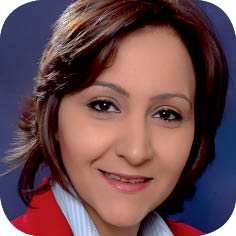To the average person, the word advocacy signals an attempt by a group of people to lobby for a good cause. To most, if not all Palestinians, advocacy has been a way of life for decades. Long before the availability of internet and social media, Palestinians understood that succeeding in their struggle for freedom required the widest possible coalition of international solidarity.
Since the 1920s, Palestinians have organized, convened lectures, and used art and many other tools to advocate for their just cause around the world. But these efforts were limited in scope and effect for many reasons, including lack of financial resources as well as presuppositions and biases of a cultural or political nature.
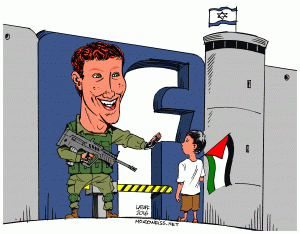
Despite the setbacks and disappointment, Palestinian advocacy persisted following the Nakba. By the 1970s, the Palestinian people had become an integral part of an international movement against colonialism and oppression, boasting a wide network of international solidarity that spanned the globe. From Addis Ababa to Madrid, Dublin to San Francisco, Managua, and beyond, human rights advocates adopted the Palestinian cause as their own. This solidarity succeeded in propelling the Palestinian cause from the margins of international politics and conscience to its center, reestablishing the Palestinians as a nation with a just cause for freedom and self-determination in their stolen homeland. While these achievements were politically and legally instrumental in advancing the Palestinian cause, they stood in stark contrast to the marginalization and dehumanization of the Palestinian in mainstream corporate media, particularly in the West. Much work was still needed to change international public opinion.
Fast-forward to the turn of the twenty-first century: the mainstreaming of internet on a global scale revolutionized advocacy for activists throughout the world, particularly the Palestinian people. Instead of laboring to break the iron gates of corporate Western media, Palestinians now had an alternative avenue that was affordable, accessible, and theoretically not subject to censorship. Individual Palestinians, civil society organizations, human rights advocates, and some official institutions took to this new and boundless medium to tell their story.
The introduction of social media provided Palestinians and pro-Palestine groups with the tool they needed to penetrate the censorship filters of corporate media and become part of the conversation. This was no easy task. There were hurdles.
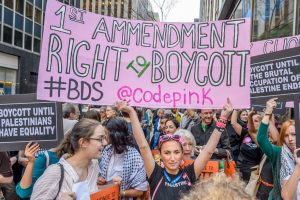
English remains the single most effective language on social media, and activists quickly understood that advocacy in English was not just about language; it was also about cultural nuance. It was not enough to state your point in English. On social media, you have to be ready to defend your narrative and back up your claims. You have to have the patience and skill to respond to counterarguments and distinguish between genuine opinions and automated or fake accounts that are designed to drown your timeline with negative responses and outright lies at times. This requires skill, calm nerves, and strategy.
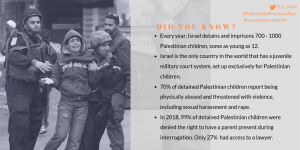
There are two types of advocacy in social media. One is rather personal, where persons engage in discussions with others whose views are on the opposite end of the spectrum. Regrettably, social media has proven to have the capacity to bring out the worst in people, with exchanges between people of opposing camps often sliding into nasty recriminations. This has become more difficult as social media’s sorting algorithms increasingly shield users from opposing views, showing them accounts and groups that are similar to those they already follow. In effect, this creates bubbles of the like-minded on social media, only penetrated by highly organized networks of accounts with the aim to disrupt rather than engage.
The growing trend of utilizing “bots” or paid accounts to engage in large-scale attacks on high-profile figures for the purpose of intimidation or character assassination is worrying. It is a potent and expensive tactic often used to silence pro-Palestine voices, including by the Israeli army and government who have publicized hiring hundreds of university students to serve as their “electronic army.”*1
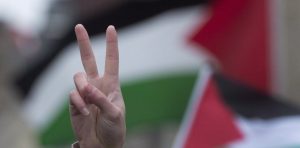
In addition, since 2016, Israel has signed agreements with Facebook and Twitter to monitor “harmful” content, which is a euphemism for Palestinian activism. By 2017, the Israeli attorney general boasted that 85 percent of Israeli requests to remove such content were approved. In an additional attempt to silence dissent, Israel developed an algorithm to monitor Palestinian social media accounts that has resulted in a dramatic increase, over the past three years, in the number of Palestinians who were detained because of their social media activity.
Ultimately, to transform advocacy from the rhetorical to the realm of action, Palestinians need local partners to lobby with them and on their behalf for changes in their government’s policy. It is not enough to inform and educate. It is not enough to protest injustice. Tipping the balance towards justice requires vision, engagement, and most importantly, a clear actionable plan.
The second, more effective form of social media advocacy, in my opinion, is focused campaigning. In order to ensure successful social media advocacy for Palestine, advocates must be able to find the right balance between their passion for the cause and their professional strategy for outreach. In addition to the globally successful BDS campaign, a bright example of this balance is the campaign No Way to Treat a Child,*2 launched by DCI Palestine, an organization dedicated to the defense of Palestinian children. This campaign required years of dedicated work and cool-headed campaigning and is now the one of the leading voices on Palestinian children’s rights, specifically those of Palestinian children imprisoned by Israeli occupation. In fact, the campaign has introduced a draft legislation that is gaining ground and co-sponsors in the US Congress, with Congresswoman Alexandria Ocasio-Cortez voicing her support for the legislation*3 introduced in 2017 by Congresswoman Betty McCollum.*4 In addition to clarity of message, consistency, and focus, the No Way to Treat a Child campaign formed a network of partners in the United States and around the world.
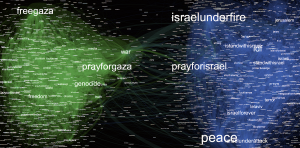
Individual advocacy on social media is critically important and must not be overlooked. Palestinians from all walks of life who are active on social media can use their timeline as a platform to advocate for Palestine among their friends and colleagues. This kind of advocacy is important because it contributes to the indispensable task of informing and engaging people with various interests. However, in the age of alternative facts and fake news, users must take extra precautions to maintain their credibility, using only verifiable information and avoiding the trap of spreading fake news or rumors.
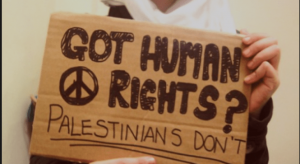
It is difficult to form a decisive conclusion about the success of Palestinian social media advocacy, due in part to the lack of comprehensive data on the issue. However, there are encouraging indicators. Palestine is part of the international conversation and increasingly, it is a litmus test for progressives, especially in the United States. This is new and refreshing. Worldwide, international support for Palestine is on the rise, surpassing the official positions of governments in Europe, Australia, the United States, and elsewhere. Social media has allowed for the formation of global alliances based on common principles and neutralizes efforts to isolate the Palestinian cause from others. Despite the rise of nasty populist, right-wing, and racist politics, the conversation today about human rights does not and cannot exclude Palestinians; defending one requires standing up for the other.
I believe that the future is for progressives. The darkness of fundamentalist, populist, racist, fear-mongering politics will be defeated by the openness and free exchange of ideas that social-media networking provides. This conviction provides me and many others with enough hope and energy to push ahead, spread the word, and forge alliances based on convictions, not political expediency or interest. In great part, we have social media to thank for that.
*1 https://www.haaretz.com/.premium-social-media-hasbara-worth-millions-1.5320153.
*2 https://nwttac.dci-palestine.org/about.
*3 https://twitter.com/AOC/status/1118597784054243328.
*4 https://mccollum.house.gov/media/press-releases/mccollum-introduces-legislation-promote-human-rights-palestinian-children.

